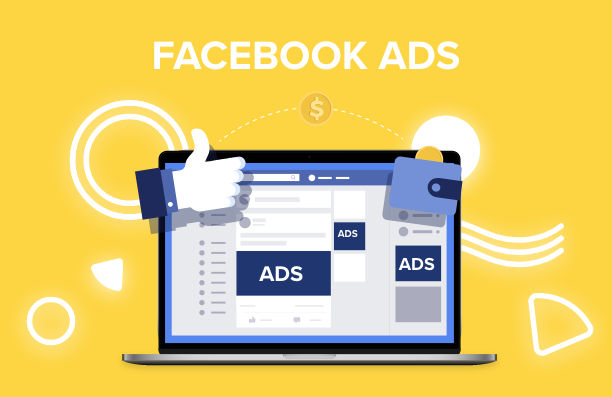Google ads and facebook ads are both effective ways for real estate agents to gain exposure, grow clientele, generate leads, and sell properties. However, each platform has its own strengths and weaknesses.
Facebook ads are more visual and can capture a wider audience. They also offer detailed targeting capabilities such as zip code, family income, and interests.
Cost
Google Ads is a great option for real estate agents who are looking to attract high-intent leads. These leads are actively searching for products and services related to their needs, which means that you can reach them before your competitors do. However, you need to be prepared to answer their questions as quickly as possible. Otherwise, you may miss out on a lead and lose business.
Unlike Google Ads, Facebook ads offer a more holistic approach to marketing. They can target specific audiences based on their interests, demographics, and buying behavior. In addition, they can provide a variety of advertising formats, including video ads, which can be particularly effective for real estate.
In addition to targeting property buyers, Facebook ads also work well for generating brand awareness and driving conversions at the top of the funnel. They are also ideal for retargeting existing audiences or creating lists that look like your existing database.
Ultimately, the type of advertising you choose should depend on your goals and budget. Both platforms offer unique benefits, but they should be used in conjunction with each other to maximize the effectiveness of your campaign. While Facebook has a lower cost-per-click, it does not offer the same level of audience precision as Google ads. For this reason, it’s important to weigh the costs and benefits of each platform before making a decision.
Audience
Google ads are a great way for real estate agents to reach customers online. They can use a variety of keywords and target their audience based on their search habits. Using these strategies will ensure that your real estate ads are seen by people who are looking for homes, and will help you reach the right people at the right time.
Google advertising is a great tool for generating new leads, and it is possible to get high conversion rates when you optimize your ads and follow up with your prospects quickly. However, it’s important to note that it can take up to a year to see results. In addition, it’s essential to test different ads and funnels before settling on one that works best for you.
Both Facebook and Google are good for capturing home buyer leads, but each platform has its pros and cons. Depending on your business needs, you may need to combine both platforms to maximize your effectiveness. For example, Facebook can be used to capture awareness leads, while Google can help you nurture those leads and convert them into clients. Moreover, both platforms allow you to sync your Google real estate leads with CRMs and autoresponders. This can save you time and money and prevent leads from falling through the cracks. In addition, you can add a form extension to your Google real estate ad to collect lead information.
Reach
Google ads can reach a wide audience because they target users based on their search intent. This can be a powerful way to market real estate to people who are already interested in purchasing property. However, the success of this type of marketing depends on the quality of your website and content. You should be prepared to invest time and money in order to achieve a strong return on investment.
Facebook ads, on the other hand, can be more effective for generating leads. These ads are ideal for people who are early in the buying journey and may not have the intention to buy right away. However, they can be a great way to get their name on your email list and nurture them with custom messages over time. The cost per lead on Facebook is also less expensive than that of Google.
Both platforms have their pros and cons, but the best way to determine which one is right for you depends on your goals, budget, and the type of property you are selling. In general, Facebook is a better choice for generating awareness of your brand and product, while Google is a good option for targeting people who are ready to buy. However, both platforms offer different features that can help you improve your results. For example, Google’s AdWords platform offers a lead form extension that allows you to capture leads directly from your website. This integration can be synced with your CRM or autoresponders, such as BoomTownROI and Hubspot, to ensure that your leads are properly followed up on.
Conversions
When it comes to real estate marketing, conversions are the most important factor. Creating effective ads is critical to success in this niche. The ad campaign needs to be structured in a way that pushes the leads down the funnel until they are ready to make an offer. It is also essential to test the ad over a long period of time, so you can see whether it is working or not.
Google Ads are ideal for demand capture, which means targeting users who are actively searching for something online. This type of user has high purchase intent and will likely contact a realtor to buy or sell a property. On the other hand, Facebook users are more interested in browsing and socializing. Therefore, they don’t have the same buyer intent as Google users.
Both platforms are capable of producing strong conversions, but you need to choose the right one for your business. Moreover, you need to consider your business goals and how you want to reach your target audience. For instance, if you are running a real estate business, you’ll need to target older, more established buyers. This will require a different tone of voice and ad structure. Lastly, it is important to remember that PPC advertising is a long-term strategy and will take a while before you start seeing results.






More Stories
SEO Off Page Activity On Top Of Page
The Top SEO Hacks For New Bloggers
5G Availability: Phones and Providers Currently Offering the Network